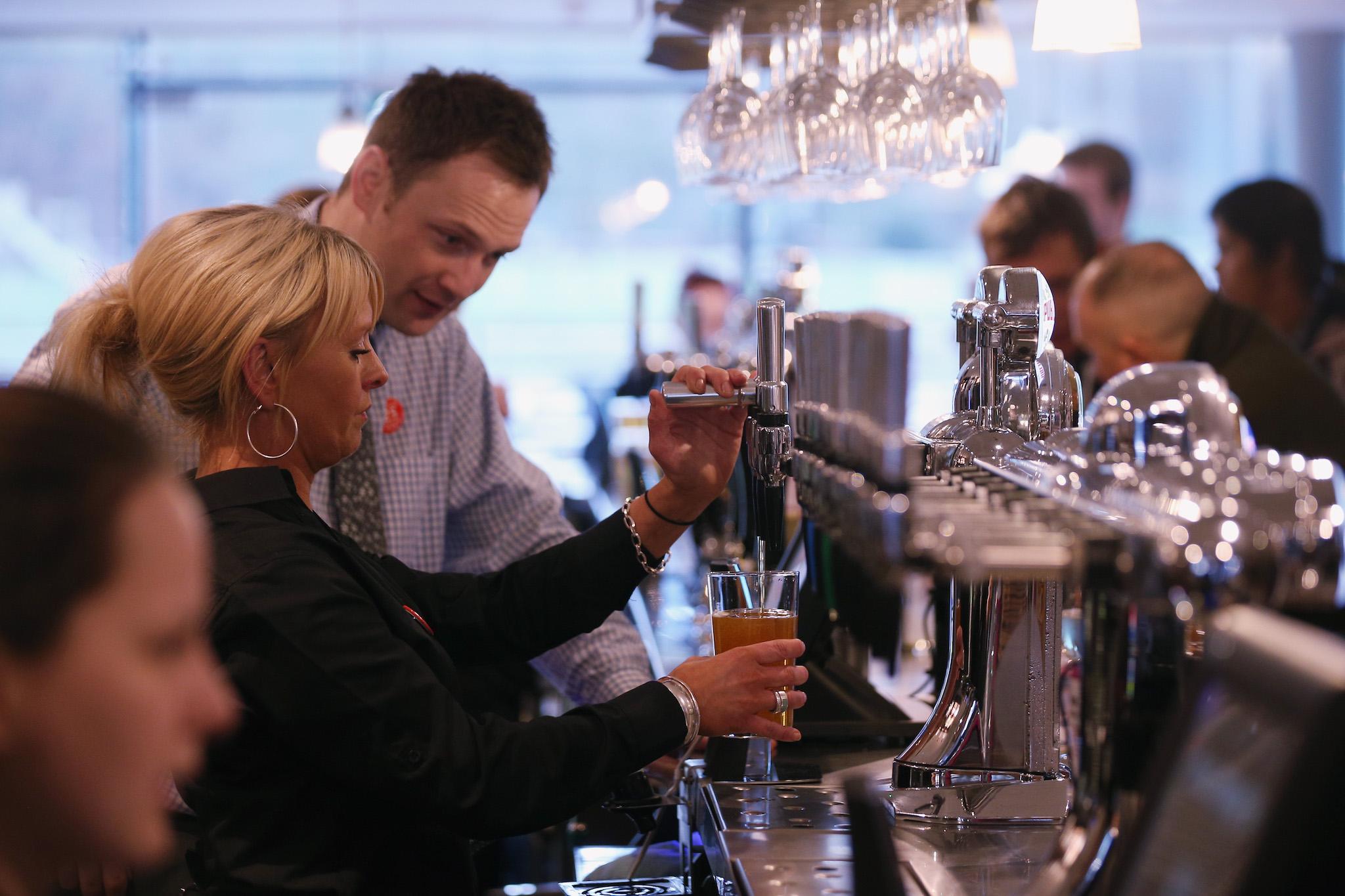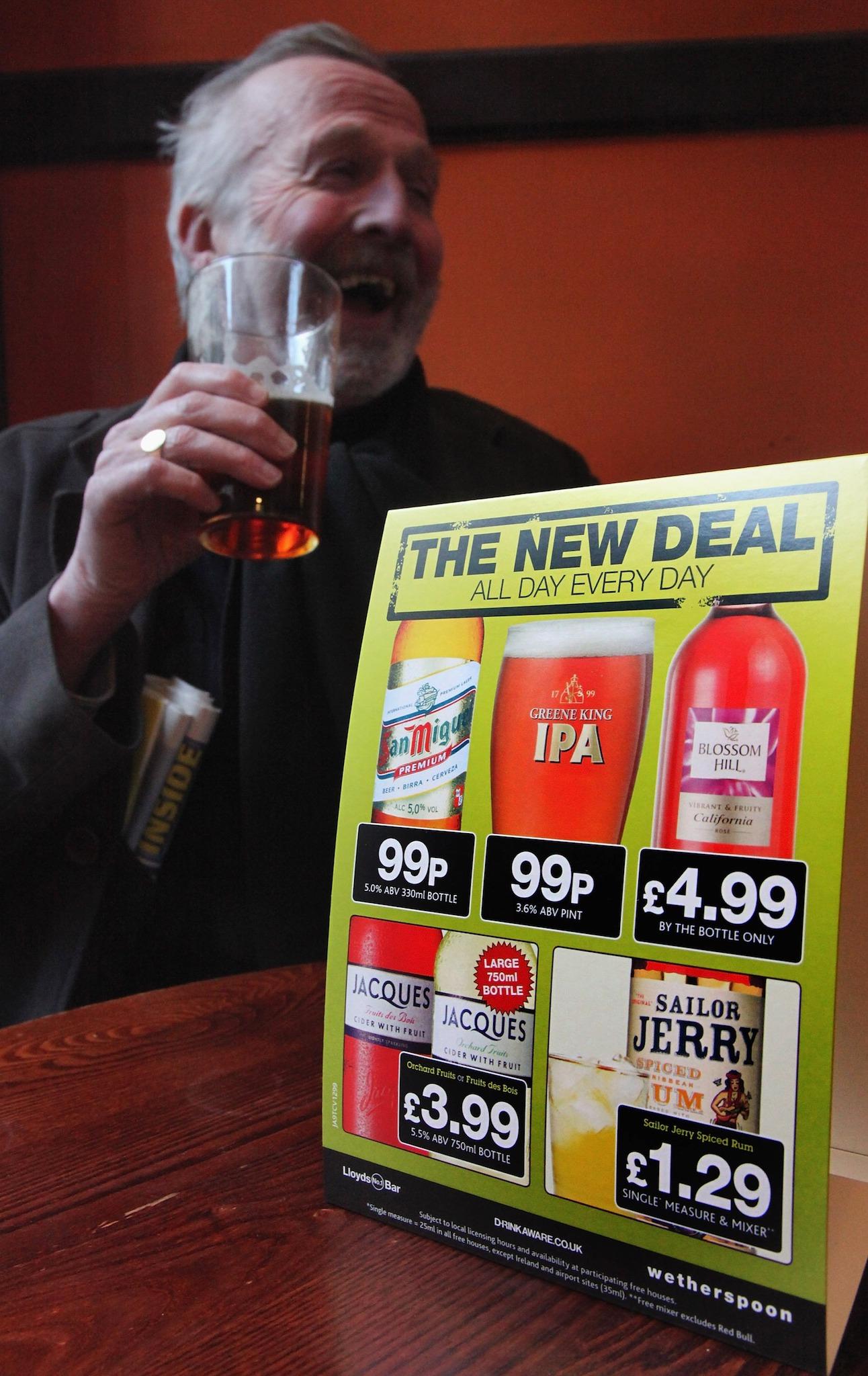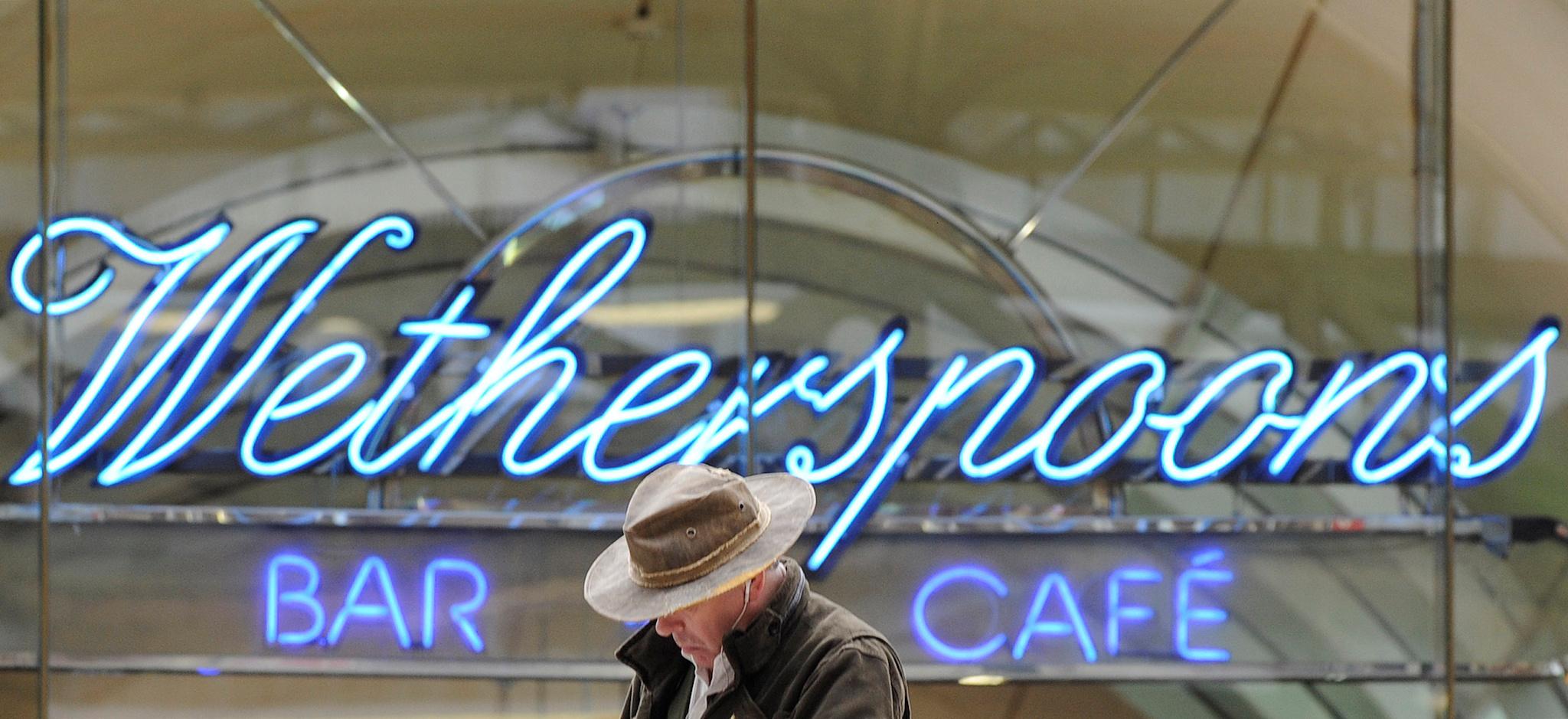Wetherspoon's 'Order & Pay' app is the future – not just of pubs but of the world
Britain's most famous pub chain is expert at putting new wine in old bottles, or cheap wine in old buildings

Wetherspoon might have killed off the traditional pub and heralded the rise of the robots. Or it might just have saved it.
The company has unleashed into the world its Order & Pay app – specifically made so that nobody will ever have to queue at the bar again.
The way it works is simple enough: you tell it what your table you’re at, what food or drink you want, and pay for it. Seconds or minutes later your request will arrive, served by one of the bar staff.
But what it actually means isn’t simple at all. The decision could be a threat to the traditional pub – or it could save it.
The pub has been roughly the same since roman times – made up of a room with a bar in it, someone behind it with alcohol and someone in front of it requesting it. It probably seemed like it would never change. But then Wetherspoon arrived.
Wetherspoon is perhaps the best known pub chain in Britain, famous among other things for tastefully converting other buildings into inns. But it’s actually a great innovator, according to its spokespeople, and the new app just plays into a long history of deciding to shake up the idea of the pub and letting the drinks spill where they will.
The idea began with a trial in just a few pubs. Introducing it is simple enough – it doesn’t require new tills, though of course it adds a new way of working – and once it was proven to work it made its way into the 900 outlets that Wetherspoon has across the UK and Ireland.
It arrived recently, and now pubs across the country are encouraging their customers to download, order and pay.
The idea perhaps isn't wholly new – in medieval times and still in some countries pubs have table service and so customers don't ever have to get up. And until relatively recently some pubs had bell pushes that could be used to summon staff for service, too. But Wetherspoon says that it is the biggest chain to introduce such a change, and while individual pubs might have similar tools there's no major pub chain that has one.
“Since its introduction, the Wetherspoon Order & Pay app has proven a big hit with customers and is now available in all of our pubs across the UK,” the official website reads, pointing out that it had initially been introduced on iPhone but is now available on Android, too.
“No more queuing at the bar – just use the Order & Pay app, sit back and relax, and the order is delivered directly to you at your table,” the site continues.
“Simple to use, the app has a scrolling menu feature, making it easy to browse the Wetherspoon menu (including club deals) and place your order. It also has a reorder function, to repeat your favourite purchases, for quickness and ease.”

The site then goes on to lay out reasons why you might want to use the app – bizarrely grouped under the headers “Youngsters” and “Free”. It says, for instance that someone who’s eating with a young child that they don’t want to leave on their own at the table, or drag up to the bar, now doesn’t have to make the choice.
“Not so mobile, or sitting a long way from the bar, and unable to easily negotiate a busy pub – use the app,” it continues. “Don’t want to carry a large round of drinks back through a packed pub or to have to make more than one trip to the bar? No problem – use the app.”
It then makes clear that the app is free, though of course the food and drink ordered with it isn’t. The prices are the same as paying at the bar.
But the cost might be much higher. Some fear that by essentially turning bar staff into an app, it might be heralding the end of the very function of the pub as a social hub.
“I think the pub is somewhere you to go interact with people not just yourself,” says Heather Griffin – who works at Sheffield’s Rutland Arms, which doesn’t have an app – and is the author's sister. "And our generation are becoming so afraid of social interaction and this is just going to make it worse.”
The Rutland is a small pub, less likely to undertake the huge project of switching to an app for ordering. But Ms Griffin is glad of that.
“I wouldn't like it if I worked there,” she says. “Serving people and getting to talk to them is the best part of the job, so it taking that away just takes all of the human aspect out of it.”
Eventually, it’s possible to imagine that she wouldn’t be there to resist, anyway – if an app can take an order, then surely eventually a robot can deliver it, too. The app could be the beginning of a clear but less obvious consequence of automation, and like all automation people might be distracted by the fact that it does certainly make things easier.
And it does – in a busy pub, ordering on an app cuts out the lengthy times spent waiting to be served and the pain of doing so while queueing up. It also gets rid of the stress of choosing once at the bar, since the app offers a full menu as well as tasting notes and nutritional information on everything that it offers.
But when the drink does arrive, the delivery can hint a little at that automated, heartless future, according to some customers. It’s precisely when the humans arrive with a drink that it’s clear what would be missed if the technology became all-encompassing.
“While it's nice being brought a drink to your table, like you're in an all-inclusive resort, it's a bit of a crash back into the real world when it's plonked on your table without a word being spoken,” said Ibrahim Salha, the Independent’s head of audience and a Wetherspoon fan. (Favourite pub: The William Morris in Hammersmith.)
“We remarked that it probably gets rid of an integral part of the pub experience — the service, charming or otherwise. No one really spoke to us and it's easy to go there and get an experience similar to one of those ramen places in Japan where you order off a machine and sit in silence.
“However, when we had a problem with our order everything changed. The service shone like a welcome light in the darkness and the staff were happy to accommodate a mix-up where we forgot to order a drink that came free with the curry. Helpful and eager to please, they fulfilled an aspect the app could never replace.”
Kirsty Major, commissioning editor at Independent Voices – whose curry was the one whose drink was forgotten and whose favourite pub is the lush Knights Templar near London’s Inns of Court – was equally excited, and equally cautious.
“The app was definitely a novelty, and trying it out with friends was fun, even if I did forget to order my free drink with my curry,” she says. “But I wonder how long it will be fun for, until it just becomes normal and our interactions with other people in the pub, including the staff, becomes walking past each other on the way to the loo.”
That said, both Mr Salha and Ms Major are declared Order & Pay enthusiast.
“I'm a fan of the app for a couple of reasons,” he says. “The main one is that I'm a pretty big fan of fads. I'll be the first to admit it. It's simply pretty neat being able to order your drinks on your phone, pay with Apple Pay and then have them brought over to your table without queuing up at the bar and hoping to get noticed. It eliminates any issue of queue-jumping and you don't have to remember complex orders. Plus — and, perhaps most importantly — it means if you're less mobile or have trouble carrying drinks, you can relax as it's handled for you. However, I'm not a fan of the fact it has a limited version of the drinks list and you can't really customise, or you can't ask for things like a straw on the app.”

Like all technology, Wetherspoon as well as customers initially describe the app as useful to young people. But as both Mr Salha and Ms Griffin note, it’s not actually most useful to that demographic – it instead frees up possibilities among people for whom a trip to the pub might otherwise be a difficult experience, like customers with disabilities or with family that they can’t leave alone at their table.
Wetherspoon is skilled at putting new wine in old bottles – or cheap wine in old buildings – with many of its pubs taking over buildings that would otherwise languish uselessly or be bulldozed into flats. It has rescued theatres, cinemas, banks, post offices, swimming pools and churches and turned them into public houses – themselves a kind of building under threat, which Wetherspoon is doing its bit to save.
The app is done in much the same spirit: innovation and ease, two words not typically associated with pubs, added to a process that is thousands of years old. The British high street looks far more traditional than it might have done without Wetherspoon to save its pubs, even if the pubs themselves look a lot less traditional than they might under any other owner.
What that really means for pubs, for their customers and for the people who work at them will depend on something far too big to settle over a pint – questions of society and capitalism, the challenge that globalisation and automation pose to our entire economic and social order. But at least, from somewhere, the pints keep coming.
Join our commenting forum
Join thought-provoking conversations, follow other Independent readers and see their replies
Comments